You may remember my post a few weeks ago about the proposed changes to regulations aimed at protecting foreign blue-collar labor, and my absolute fury over allowing employers in Taiwan who had previously sexually abused a foreign worker to hire one again after after a few years, with a lifetime ban only after repeated offenses.
A few things I've learned since then - Taiwanese women are not protected either (the vast majority of domestic workers in Taiwan are foreign women, however), and although Taiwan has a sex offender registry, it is not open to the public and therefore potential foreign employees at this time have no way of knowing if they are taking a job with a convicted sex offender.
So, I've written up a new piece for Ketagalan Media on this issue. As a foreign woman, albeit one of comparative privilege, it is important to me.
I hope you'll take a look.
Monday, September 25, 2017
Some thoughts on the "Sing China Music Festival" protests and violence
 |
| Photo from student activist public posts on Facebook |
Earlier today, a music festival meant to "showcase the talents" of Chinese and Taiwanese musicians and bring them together so they could "learn from each other" (this was the official talking point, anyway) was stopped early as pro-Taiwan protests broke out. At one point, at least one pro-China unificationist, an older man, confronted the protesting students, beating at least one with a stick to the point that he was bleeding profusely and had to be taken to a hospital for treatment.
Update: Taipei Times has by far the best story. This gives a full accounting of what happened before the pro-China people got involved. And here's an article from New Bloom which has some great legwork on the history of Sing China and how its rebranding could well be a part of attempts at cultural unification, as well as background on the backlash against Taipei Mayor Ko Wen-je.
Focus Taiwan ran a "story" in English, with Apple Daily publishing something in Chinese and Freddy Lim commenting on Facebook (also in Chinese). There is also a bilingual report from a Facebook poster here, and a video - do watch the video - here.
Here's another video (which will link to more) showing more of what happened. It looks pretty clear that the students are not the ones who started the altercation.
The initial protests seemed to have two purposes: on one hand, they were clearly pro-Taiwan protests who did not want this Chinese music festival to take place. You can see that by the flags they are carrying, which are either the Taiwan flag that pro-independence activists use (a green Taiwan on a white field with green sides, looking similar to but not the same as the flag of the Democratic Progressive Party) or the sea green "I support Taiwan independence" banners with Taiwan inside of a stylized whale.
On the other, stated complaints where that the festival monopolized (and damaged) facilities on the NTU campus, including an athletic field that had been off-limits to students for some time to prepare for the festival.
There is also a discussion on constitutional reform (discussed today by Tsai Ying-wen at the DPP Party Congress) and 'students' rights' surrounding this that I'm still trying to unpack, which I'm going to go ahead and admit rather than pretend I understand every aspect of this incident.
Some reports say the protesters originally held tickets to the event, but were blocked from entering. Eventually, the festival was halted well before the scheduled 10pm ending time. Protesters later stormed the stage bearing pro-Taiwan signs.
Then, near the venue, at least one unificationist counter-protester from the Concentric Patriotism Association (愛國同心會), the same people responsible for violence outside Taipei 101 and for confrontational tactics even when protesting legally, approached, yelled at, threatened and beat one of the pro-Taiwan protesters. (Yes, I am sure it's them as behind him you can see one of their vans covered in Chinese flags in the video).
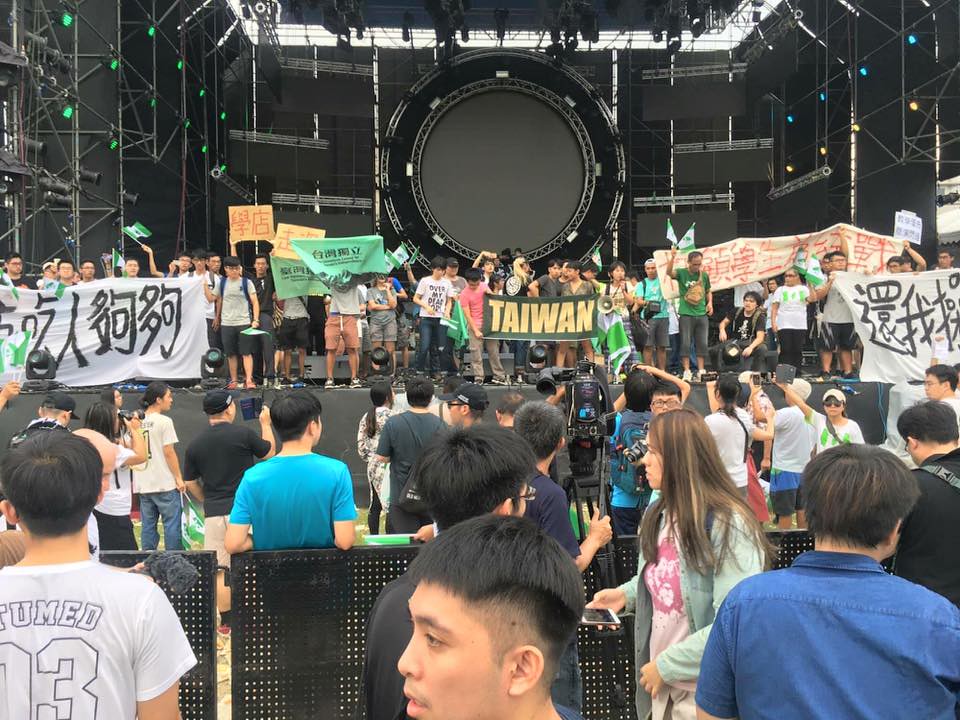 |
| Photo from student activist public posts on Facebook |
According to the Facebook post, the police were called but took over 50 minutes to respond. This is clearly a problem, as it happened in a central location. The time it takes for the police to get a call and send someone does not account for that.
There's a lot to unpack here, so let's take a look.
First, why protest a music festival? Protesting that an unwanted festival is taking facilities away from students is one thing, but why the obvious pro-independence bent?
The most obvious issue, as Taipei Times pointed out, is that despite taking over student facilities including a track and athletic field at NTU, and despite this being billed as a cooperative "sister city" event between Taipei and Shanghai, in fact, the event organizers called National Taiwan University "Taipei City Taiwan University". Some protested that they were not "China Taiwan University", as well. The students - quite rightly in my view - were offended by the event stripping NTU of its real name and status, in the same way that Taiwan is stripped of its real name and dignity and is forced to compete in international sporting events as "Chinese Taipei".
It's also noteworthy that, although similar events have taken place before, in the past they were approved under a KMT-led city government. Now that the KMT is out of power in both Taipei and the national government, people expect better, not more humiliating name changes. Hence the anger at Mayor Ko, who was once seen as a pro-Taiwan politician but whose record on pro-Taiwan issues has since been marred.
From the Focus Taiwan article, you might be led to believe that this was just an innocuous cultural activity that was halted by thuggish immature students. You would probably be wrong. Although the festival was, according to Focus Taiwan, "legally permitted", it is widely believed to be connected to China's United Front work (the United Front being the amalgamation of Chinese organizations that work together to promote a pro-China and anti-Taiwan worldview - among other things - on a global scale. They do this through a number of means which you can read about here and here). New Bloom (linked above) lays out what this might look like in practice well:
Sing! China, the rebranding of the earlier The Voice of China singing competition, is a well-known Chinese reality television show. What is notable about Sing! China and its predecessor The Voice of China, however, is that the show goes out of its way to feature contestants drawn from “greater China,” including Taiwan and Hong Kong. This is also true of the television show’s judging panel, in which two of the six judges, Jay Chou and Harlem Yu, are Taiwanese. Judge Eason Chan, likewise, hails from Hong Kong, meaning that three out of the show’s six judges are not actually from the China mainland. The notion of “greater China” emphasized in the show goes to great odds to show that its contestants are drawn from all across “greater China”, with contestants oftentimes stating which province they are at the beginning of their self-introduction, and with their home province listed in their profile. Obviously, “Taiwan” is always a “province” of China on Sing! China.
Everyone I've talked to about this believes the festival to be connected to the United Front. Freddy Lim's post also alludes to this. He doesn't use the exact words "United Front" (統派) but he does say "這雖然是學生權益事件,大家也想知道,台大校方與台北市政府,怎麼能夠容許這樣帶有統戰意味、會稱來自「中國台北」的活動,進入校園、進入台北市" - "Although this is a student rights issue, everyone wants to know, how could NTU and the Taipei City government allow such a united front, coming from "Chinese Taipei" activities into the campus and into Taipei?" (Emphasis mine).
I don't think it's an accident that Freddy used words that literally mean "united front" without actually referring to the United Front by name. What I'm saying is, these students, it seems to me, did not just protest a music festival because it happened to be related to China. They protested it because they knew it was just one of the United Front's many tactics in their war of attrition and propaganda against Taiwan. Their mission - disruption of campus facilities or Taiwan independence? - was not confused. In this light, it makes perfect sense. Next, let's look at the Focus Taiwan article, which I am trying very hard to refrain from calling all manner of names. Did one of the oldsters from the Concentric Patriotism Association get a job at CNA or Focus Taiwan? The article paints the festival as innocently as possible - perhaps fair as there is no proof it was anything other than that, but any even halfway intelligent person should be able to deduce that there's more than meets the eye here. But not Focus Taiwan. They say:
The MAC noted that Sing China Music Festival was a legally permitted activity that was meant to showcase Taiwan's music talent and give young musicians in Taiwan and China a chance to learn from each other.
This is perhaps forgivable, as the bare facts are that it was a permitted festival that, by being allowed by Taipei City and NTU, was obviously "supported" by Taipei in some way.
However, you won't see any mention of the protesters pro-Taiwan stance or the "Taipei City Taiwan University" issue in the article, either. It's purposeful omission is telling.
But if you read the article in its entirety, you'll note that while there is mention of "injuring a student", the writers make it sound as though the injuries were the result of a fight that was instigated by both sides being confrontational. In fact, every other picture from the pro-Taiwan protest shows a peaceful, albeit disruptive, demonstration. This was not "commotion" caused by "both sides".
Protesters splashed banners, chanted slogans and stormed onto the stage while supporters of the festival shouted back, creating tension as both sides confronted each other.
Four people were injured during ensuing scuffle, and police arrested a man surnamed Hu on charges of injuring an NTU student. Hu was taken to Da'an Police Station for investigation.
This was pro-China unificationist protesters doing what we already know they do: roughing up anyone who disagrees with them. Note, as well, the implication that the protesters "chanting slogans" and "storming onto the stage" were the instigators, with the unificationists seeming to merely react. Absolutely biased, in the most insidious way.
If you watch the video, however, while it starts after the beating begins, you'll note that the pro-Taiwan person "confronting" him was saying "What do you want?" (你要什麼?) and "What are you doing?" (你幹嘛) - not something you say if you were a part of the fight starting.
It is also much more serious than simply "injuring" a student. "Injuries" happen when there's a little pushing or shoving. This was a full-on beat-down with a stick that resulting in the student going to the hospital. Nothing that student could have done would have merited being beaten like that. Focus Taiwan makes it sound like maybe they were pushing each other and the student fell. Although the video doesn't go back that far, this seems unlikely.
At the end, you'll also note this little gem:
Li Wenhui (李文輝), Shanghai City's Taiwan affairs chief who was present at the time of protest, kept a low profile and declined to make any comment on the untoward commotion.
(Rest assured that if they change this wording, I have a screenshot).
Isn't this meant to be a straight news article? I get to editorialize - this is my blog. CNA reporters whose work is appearing in Focus Taiwan don't, or shouldn't. The fact that they ran the "untoward commotion" comment at the end tells you all you need to know about how trustworthy they are as a news source. What right do they have to decide what "commotion" is untoward and what isn't?
I know Focus Taiwan can be somewhat conservative, and CNA even moreso (and also very politically biased), but here's the problem: at the time I wrote this post, other than Yiting Wang's post, this was the only English-language source on what happened available. There weren't multiple sources coming together so that people could consider the event from more than one angle and reach conclusions. Reading this, those who cannot read Chinese might get a very skewed idea of what exactly happened.
This is a problem. If we want more people in the international community to be cognizant of, and care about, Taiwanese affairs, we have to make sure they are aware of these incidents in a fully-informed way. The Focus Taiwan article, if anything, contradicts that goal rather than supporting it.
Finally, a thought.
For all of those people who take a pro-China viewpoint, or tend to clutch their pearls at pro-Taiwan demonstrations and protests, for those who think that the best or more realistic goal is eventual unification, who might even think annexation is acceptable, who think that the Concentric Patriotism Association is just as legitimate as the students who protested today, consider this.
You are on the same side as an old man who beat a student with a stick so badly that he was bleeding from the head and went to the hospital - someone who claims the freedom to protest, but uses it to attempt to aggressively and violently stop others from exercising those same rights. You are on the side that is against freedom, or rather, allowing only one viewpoint to express itself without fear.
If this is what you support, this is the Taiwan you will have should China win. This is just a taste of what authoritarian rule looks like: one side is free to say what it likes and enforce its views, whereas the other is beaten, or in China, kidnapped, tortured, disappeared, or killed.
Is this the Taiwan you want? Where one side is derided and even beaten for protesting whereas the other is free to do the beating, with the police not intervening for nearly an hour? (The police always come quickly, mind you, when the protesters are students or pro-Taiwan. It's, shall we say, odd that they seem to take so long when the call is about the Concentric Patriotism Association).
This is not free speech. This is not freedom of assembly. This is not civil disobedience, and it is certainly not non-violent resistance. It is very violent, and very anti-freedom. If you see a Chinese future for Taiwan, this is what you support.
The Concentric Patriotism Association has the right to protest and demonstrate peacefully. When they have proven again and again that they cannot and will not be peaceful, I think it's time we discussed what measures must be taken to ensure the safety of pro-Taiwan activists.
Tuesday, September 19, 2017
A rare restaurant review: mik'sutras / MIK-6
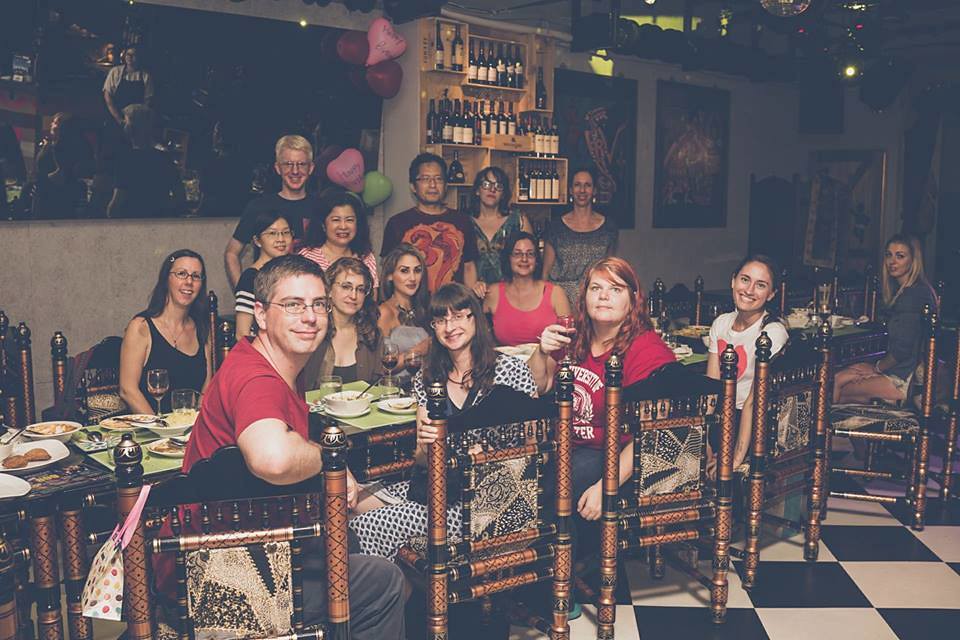
mik'sutras/MIK-6
#1 Songjiang Road (on the corner of Weishui Street)
Zhongshan District
Taipei, Taiwan
台灣台北市
中山區
松江路1-1號 (松江渭水路口)
I don't do a lot of restaurant reviews anymore, but one thing I do intend to keep doing is updating my big post on Indian food in Taipei, and reviewing Indian restaurants as I visit them.
So, I'm happy to write about my first visit to mik'sutras, the 6th business from the always fantastic Mayur Indian Kitchen. It's just to the east of Songjiang Road (松江路), actually on the corner of Weishui (渭水) street with the storefront on Weishui, very near the other Mayur (I think the 2nd one?) near the electronics market.
mik'sutras has more of a bar or club feel, but with restaurant seating. They have a full curry menu - and the curries are great as always - but not the South Indian dishes you can get elsewhere. Eventually, they'll focus more on regional snacks and chaats. They have two gorgeous ovens that are visible to the dining area, and a selection of shisha flavors served in beautiful hookahs (prices vary depending on what you order, with unusual or higher-quality flavors costing more). There is live music and occasional live dancing and performances.
Think of it as a cross between a restaurant and hookah lounge with more of a party atmosphere.

We decided to go there for my birthday, on a Sunday night. It wasn't particularly smoky, but Sunday is a quiet night for any venue, and I would imagine on nights with many hookah smokers it would be more noticeable.
The food was fantastic as always, and they did a great job catering for a large group (we were about 16). We each ordered whatever we wanted and then shared it, with rice and bread for the table - really the only way to do an Indian meal with that large a group. I ordered pork vindaloo, one of my favorite dishes but which is almost impossible to get in Taipei (I often make my own) because the owners of many Indian restaurants are Muslim. Which is fine, I get it, but it means no authentic Goan pork vindaloo for me (the best and most typical vindaloo is generally made with pork - the way the flavor of that particular meat work with the vinegar and spices does matter). It was amazing - fiery but flavorful, not just overpowering heat. I won't lie, I got a little chili high eating it.
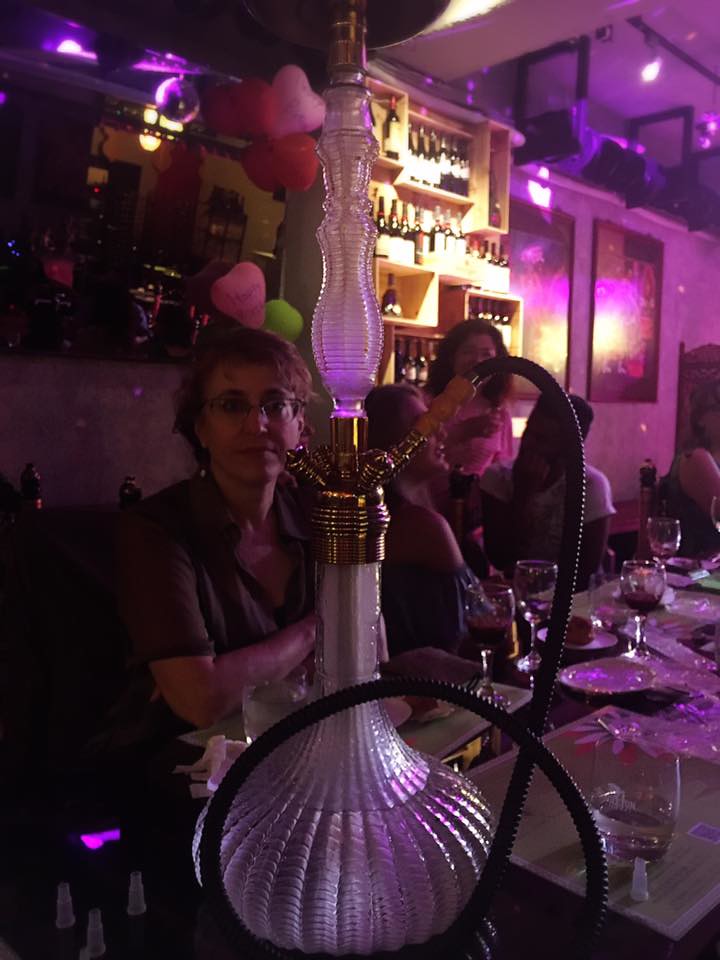
Afterwards, those who wanted to smoke did, and we got one of the more expensive mint shishas, served in a gorgeous clear hookah filled with icy water. As people headed out, the last few of us sat around talking, smoking and drinking - it was just a great party, with a low-key end on Sunday night.
I'm not really a smoker, but shisha once a year or so I think is a perfectly acceptable indulgence. I wouldn't make a habit of it and I will never smoke cigarettes (ew!) but I've spent enough time in the Arab-influenced countries of the Mediterranean to enjoy one on occasion.
What a stark contrast to the last time I went to a hookah bar in Taiwan, where the hookah was fine, and the drinks were good and strong, but they charged me for 3 martinis when I'd only had 2 and I didn't notice until the next day (and which I think was deliberate but I can't prove it). They went out of business awhile ago and I say good riddance.
Overall I had a fantastic birthday party - Indian food, hookah, chocolate cake, passionfruit cream puffs, and some friends bought me a copy of Formosa Betrayed which couldn't be a more perfect gift for this particular bookworm!
There are other hookah bars in Taipei now - such as 1000 Nights - but frankly, if you want a good Indian meal and a hookah, mik'sutras is the place for you.
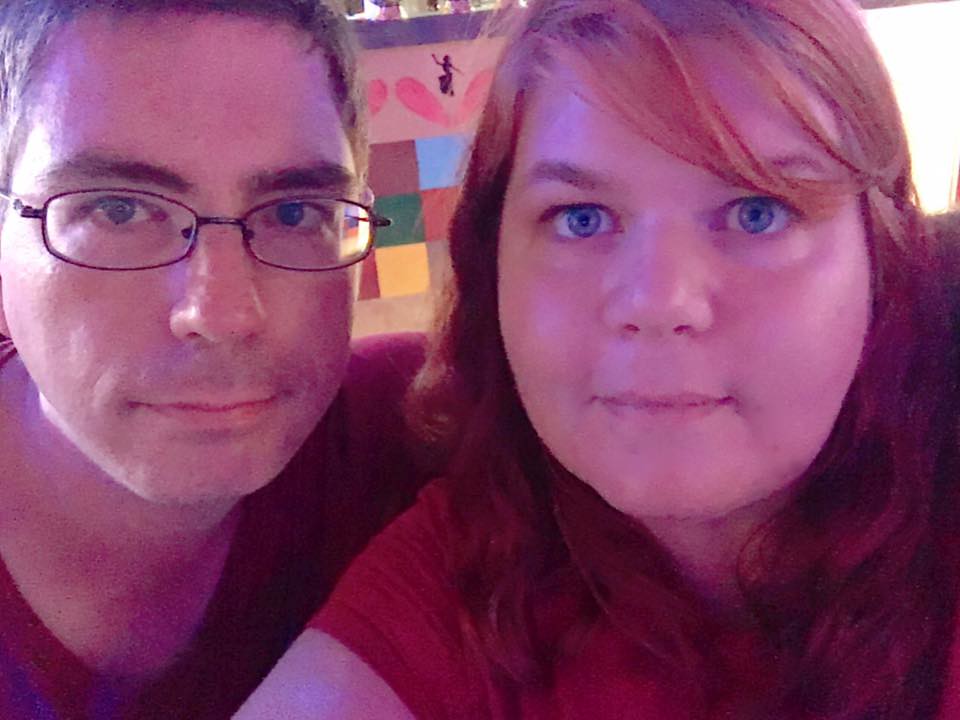
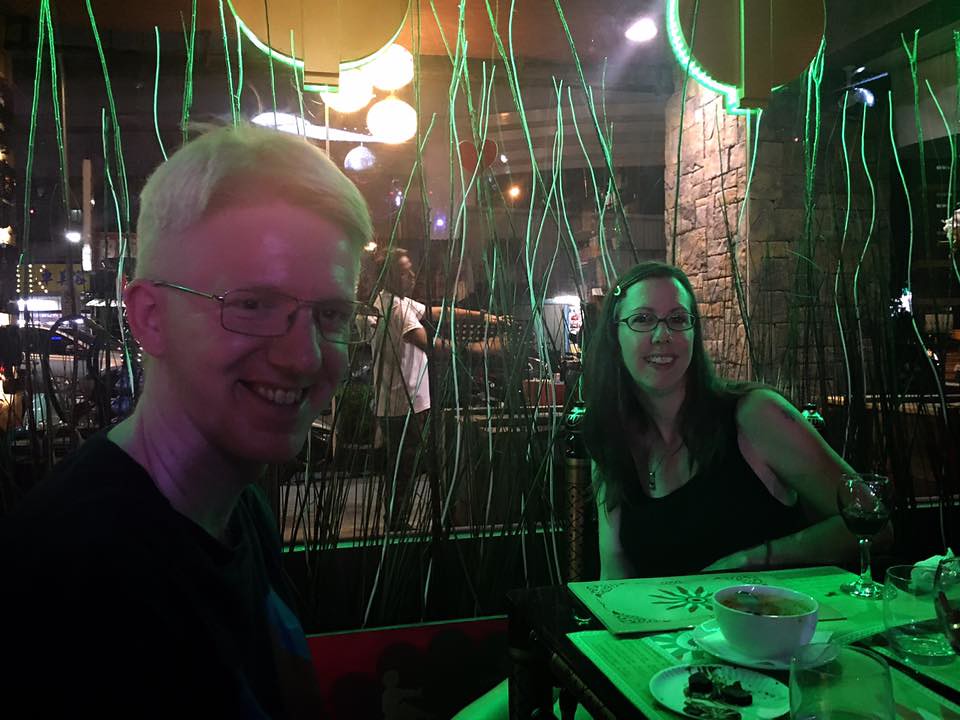
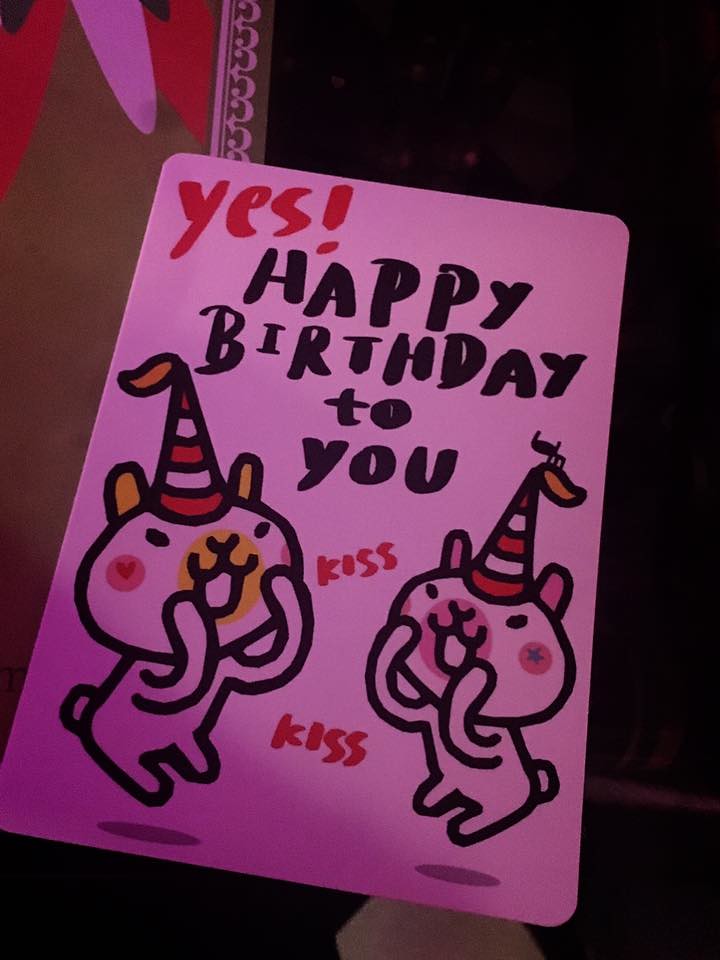
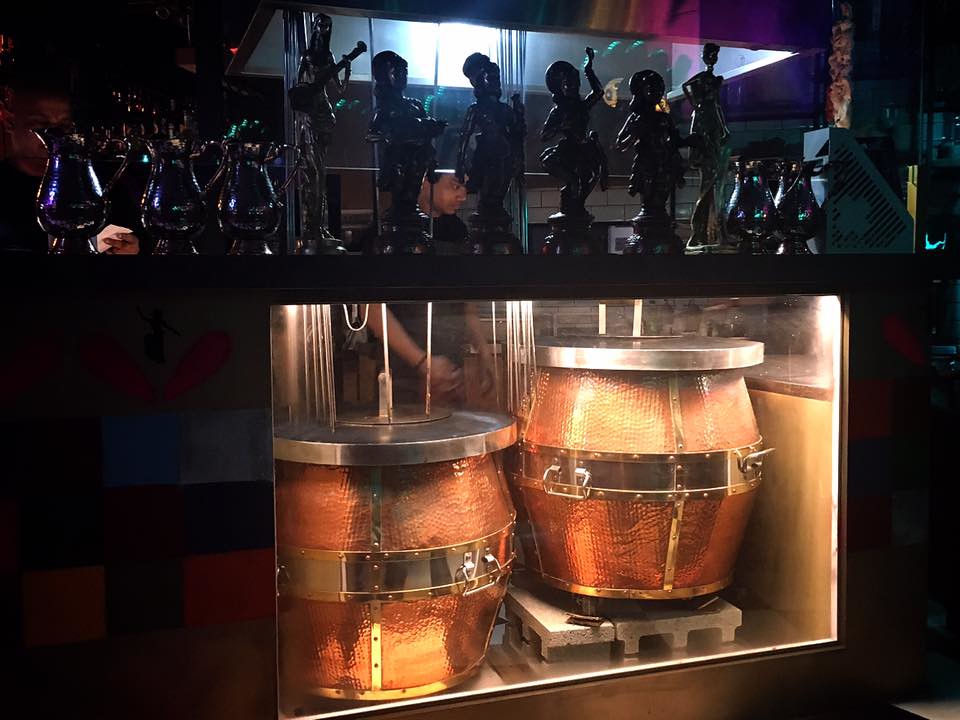
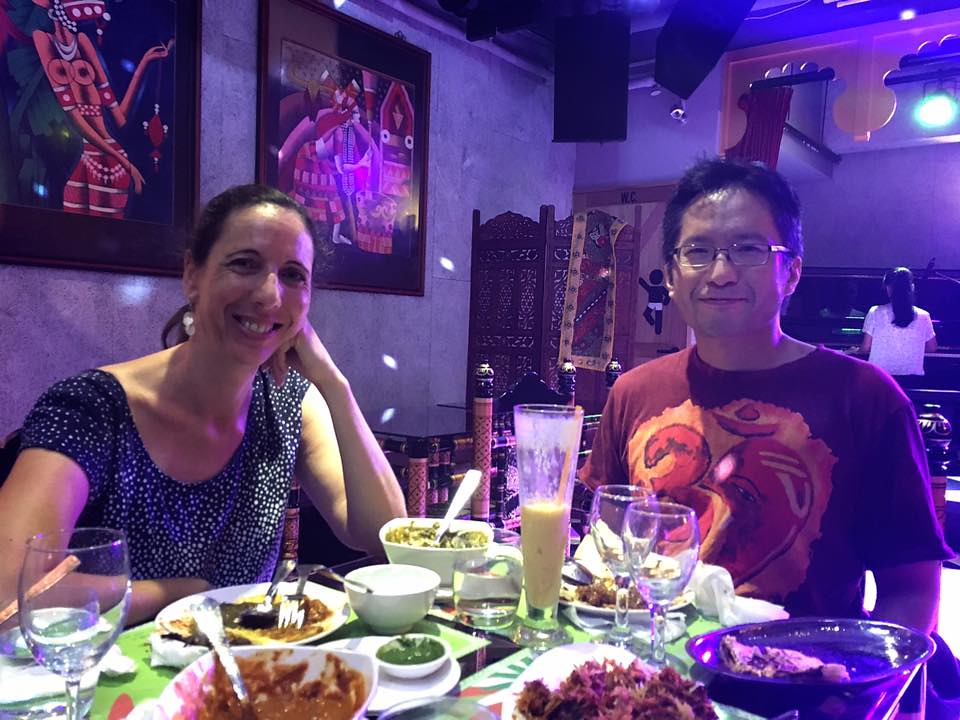
Monday, September 18, 2017
On China's event horizon and screaming into the void
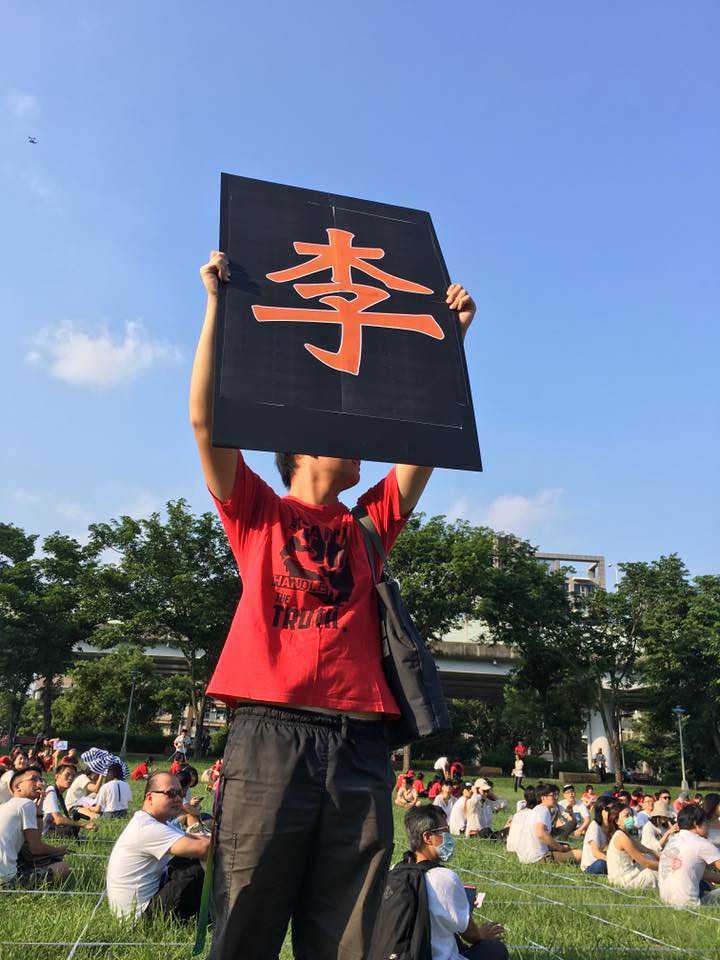
Yesterday was my birthday. I turned...well, ancient. That's fine. As a friend pointed out, life keeps getting better, so there's no reason to complain about not being that young anymore. I did all the things that I love to do: seeing friends, organizing things (I completely cleaned and organized my spice shelf, labeling all of the weirder flavorings I've bought in packets and put in jars - sumac, dried lavender, juniper berries, gentian root, black salt, kalonji...), eating Indian food (we went to mik'sutras, the newest offering from the fantastic Mayur Indian Kitchen - review coming soon) and, of course, attending protests.
So, before dinner, we participated in China! Free Li!, dutifully donning red shirts (mine was emblazoned with University of Exeter, because that's the only red t-shirt I have) and going to the Central Culture Park (中央藝文公園) near Shandao Temple to help spell out the words "China! Free Li!" on the grass.
I don't think I need to pretend I'm a real journalist and cover the particulars of the protest: you can read about that here, here and here. I'm even quoted in Storm Media about it (link in Chinese).
What I want to say is this:
I'm perfectly aware that this protest will amount to exactly nothing. Lee Ming-che's "trial" is a joke, the verdict pre-determined. China has set up a toy train with tracks that only run in one direction, and there is little we can do if we're not in the government to derail it. China is not going to free Lee just because we spelled out letters asking it to, nor is the Taiwanese government going to alter its (probably correct) strategy of working to bring him home in a behind-the-scenes way.
Literally not one thing will change as a result of my or any of us attending yesterday. Lee's case and human rights generally in China are a void into which we scream. We are not heard, and there can be no reply because a reply would require some sort of human or collective conscience or system of ethics, and the Chinese government has proven that it possesses neither. By attending, we primarily make ourselves feel better.
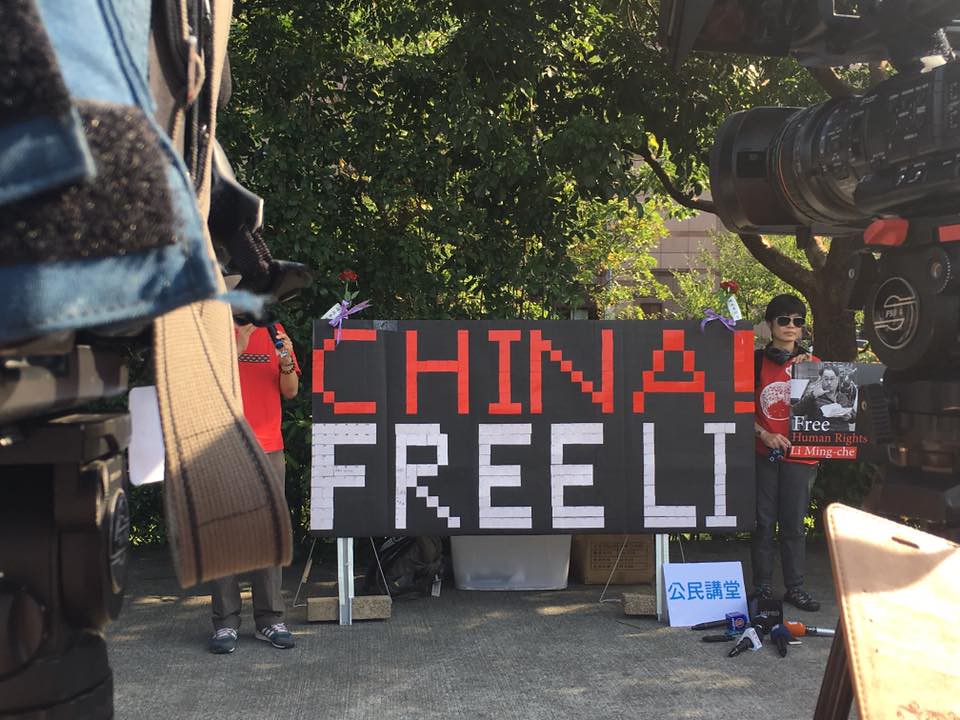
We can "make statements", "send a message", "call on" China, "rally" in support, and all of it is about as useful as writing our statements "calling on China" on construction paper and mailing them in envelopes addressed to "Santa at the North Pole" and waiting for a response.
That's not to say that protests are never useful. Around the world, they have been instrumental in effecting change, although they are rarely the primary force behind that change. The civil rights movement in the United States did not succeed in changing laws and minds primarily because they marched. They succeeded because underneath that a long, hard, quiet campaign of registering black voters, lobbying, petitioning and other forms of less-visible activism created the undercurrent necessary to bring about that change.
What protests do is put all of the activism that actually accomplishes something into the public eye, perhaps providing a catalyst moment, perhaps not, but at least creating some visibility.
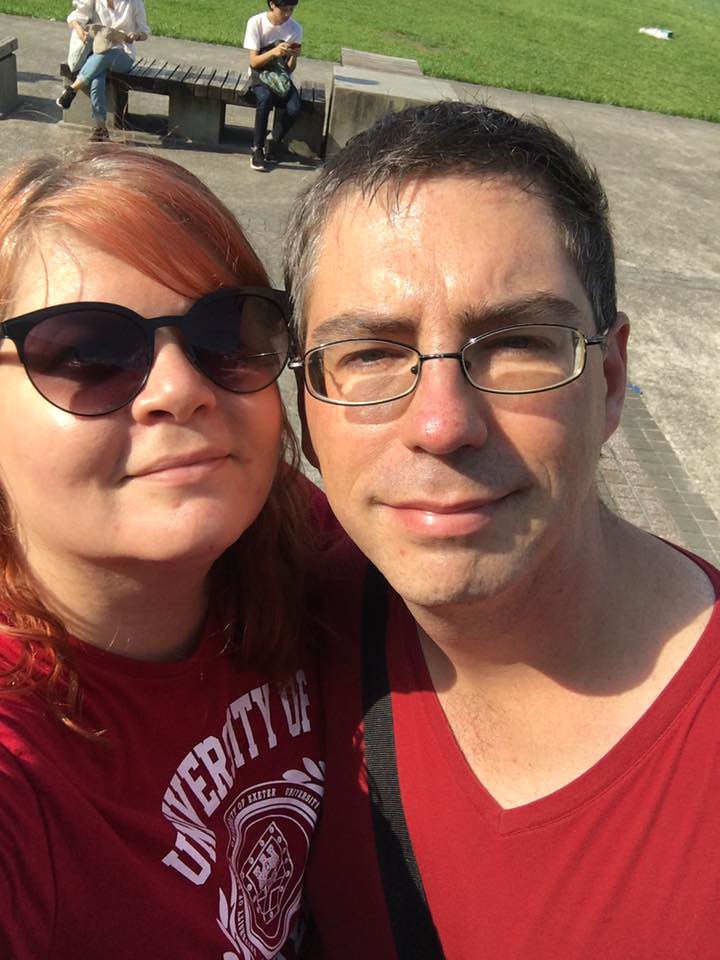
The question is, visibility to whom?
The People's Republic of China is a vacuum - a black hole devoid of any sort of moral or ethical rightness - that is trying to suck up everything on its periphery. Black holes don't listen. They can't listen. They lack the humanity to do so. The government of China, while comprised of human beings, is not humane. There can be no visibility in a system where all light is sucked into blackness, where no light escapes.
I don't even think I'm being melodramatic. It is really that bad. The situation is truly that dire. They aim to not only eradicate the concept of human rights in China, but the world. They aim to force the CCP's amoral, ethics-free, humanity-free way of looking at the world onto the rest of us - and we aren't paying attention - we don't see it coming because they're not using guns to do it.
Taiwan is close to China's event horizon, and yet, outside of Taiwan's activist circles few seem to think this is an immediate threat. We aren't going to be sucked in tomorrow, or this year, or even next year, but black holes know nothing but sucking, and they are going to keep sucking until we - and everything we stand for - no longer exists.
Those are the people I want to see this - that is the visibility I desire. They're the ones I want to hear about this case and the more general threat from China. They are the ones who, as they go about their lives - although I thrive on worry and agitation, I wouldn't want to take from anyone the ability to have worry-free days where they are not terrified for the fate of their country at every moment - should keep in mind that this is a more general threat, and to vote and be prepared to fight accordingly.
I want them to know what it would mean to be on China's event horizon - it means a fate similar to that of Hong Kong. Does Taiwan want a shell democracy in which China decides who stands for election, disbarring and even imprisoning anyone whose beliefs don't fit their narrative? Do they want a shell press where journalists and writers theoretically have freedom, but in actuality are kidnapped, tortured and killed by faceless thugs?
The Chinese government will hear nothing because voids do not hear, they only exist as a place where sound dies. But the people of Taiwan and much of the rest of the world still possess their right minds and senses. They can see and hear. They are the ones I want to reach, the ones I want to start thinking and act accordingly.
I want them to know that these issues exist, and people care about them. I don't want them to think that Lee, or China generally, are not a threat because people are apathetic. I want them and the world to know we are paying attention and perhaps get some of them to pay attention, too.
It is doubtful that the rest of the world will notice this small protest. I wouldn't even expect them to. But if Taiwan notices, and the rest of the world notices that Taiwan's vision of the future is fundamentally incompatible with China's, that will be one positive long-term outcome.
So I didn't attend China Free Li because I thought it would actually help free Lee Ming-che, or because I thought it would send a strong message to China. Fuck China.
I did it to send a strong message to Taiwan.
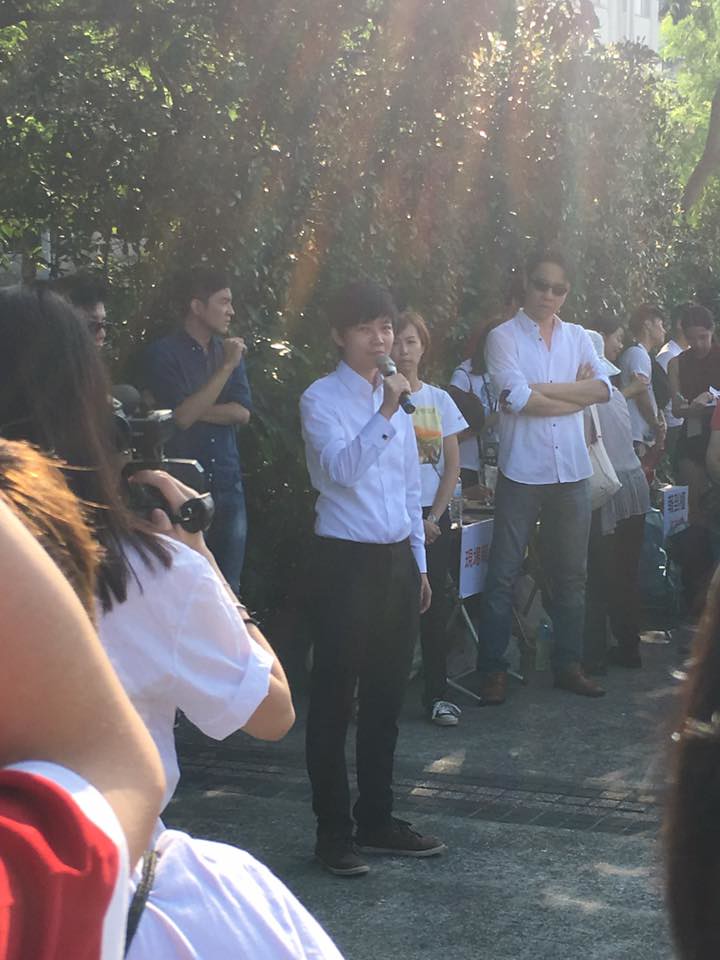 |
| So after Miao Poya speaks and while everyone's clapping, I shouted "we love you, Miao Poya!" I'm not sure if I hope she heard me. |
Sunday, September 17, 2017
The Red Tide: Taiwan, education and Western liberals
 |
| I had lots of great pictures from this protest, and lost all of them. A shame. So I've stolen this from Wikicommons like a scrub and I'm not even sorry. |
I had arrived in Taiwan just one month before, knowing next to nothing about Taiwan but thinking, as young graduates often do, that I knew quite a bit. It went something like this: there were two main parties in the "Republic of China" - the KMT, which I knew about, and the other one, which I didn't. The KMT had been the republicans-in-the-lower-case-sense who had fled from China, establishing themselves in the last vestige of "Free China", which was Taiwan. I hadn't known what Taiwan had been before that, so I assumed it had been Chinese. That must have been accurate, my subconscious surmised, because nobody had corrected me. The KMT had helped to develop the island into an industrialized and prosperous nation, eventually granting the people democracy. About a third of Taiwanese supported "reunification", a third independence, and a third were undecided. The language of Taiwan was Mandarin Chinese, and the people were Chinese. Chiang Kai-shek had been "corrupt", which was unfortunate, but he was much better than Mao Zedong. Because they had fled China, the KMT obviously did not support "reunification", which even then I did not think was a good idea. I didn't know about the other party. The current president was Chen Shui-bian, who was that other party, and who was pretty bad because he'd stolen some money, so the protesters were probably right. I knew that cross-Strait relations was "a complex issue" but ultimately, as the people of Taiwan had no consensus despite having democratized and having no other impediment, the current status quo was in everyone's best interest.
Pretty clear, right? Wow, I sure did know a lot! Practically a PhD-level expert, that was me. Just hand me my diploma.
I considered myself a good liberal: educated, well-traveled, thoughtful, engaged - a reader, talker and thinker. I cared about egalitarianism, justice, freedom and democracy, and simply doing the right thing even if it is to your detriment. I considered myself open-minded. I was secure both in my liberalism and my opinions and knowledge on Taiwan.
After all, this is what I had been taught. This was the entirety of the history of Taiwan that I had learned in my high school Social Studies class, crammed in at the end of a long unit on China. This was the version of history I defended to my teenage students in China when the subject came up. Nobody mentioned Taiwan in college, even though I'd studied International Affairs with a concentration in Asia. My main focus was South Asia, but that was still no excuse. I hadn't thought anything of it at the time, because it hadn't occurred to me that it might be important.
I had taken one course focusing on China in college - Chinese Culture Through Film. The professor was a lovely woman who had studied in Taiwan, but "had actually wanted to go to the Mainland". At the time, China had been closed to visitors, but she "had a Mao suit" that she "wore all the time", and thought of her professors in Taiwan as "doughy, soft capitalists."
While there might have been a thread of bitter irony in there, a knowledge that her earlier belief in the greatness of Mao's socialism had been misguided - to put it kindly - I hadn't picked up on it. I hadn't been to China yet but I felt a wave of sympathy for this viewpoint, because I assumed, being the larger country, that China was "more interesting" and Taiwan a backwater - of course someone would prefer to go to China.
This was what I knew about Taiwan. Therefore, this was all there was to know about Taiwan.
I'd come primarily because, after a lackluster year in China, I thought I'd give the place a try. I figured I'd probably leave in 2-3 years.
So I sat there as an incoming tide of vermilion-shirted marchers engulfed the street, flooding in to the Starbucks, banging drums, shouting for the president to step down, and generally making much merrier than you'd expect at an American protest.
The person I'd planned to meet so we could check out the action together didn't show, so I talked to a few other people there: protesters and regular coffee-drinkers alike about the Red Shirts and Taiwan in general. I don't remember many of the details of that conversation, but I do remember thinking that nothing I was told fit with the paradigm of Taiwanese affairs I'd believed. So these guys were KMT? No, not all of them, but most. So they were the other party? Some of them. So, if Chen's the bad guy, his party is the problematic one, yes? Hmm - in some ways, but not others. If the KMT gave Taiwan democracy, why does he hate them so much? Well...
Why do they hate him?
Well...
Wait, so these protesters support "reunification"?
No. Not necessarily. Actually, probably not.
That's the other party?
DEFINITELY not.
It wasn't just a different perspective - it didn't have a place at all. It was like trying to run an iPhone app on an old HTC. It made as much sense as coffee with salt or English on a night market t-shirt when one speaks coherent English.
Later, as I picked my way through the vermilion detritus washed up on the sidewalks - little did I know that protesters diligently cleaning up after themselves would become a feature of future Taiwanese social movements, the leaders of which were still in high school or starting college in 2006 - I thought one thing:
I didn't know much about Taiwan at all, and it was time I started really learning.
My name is Jenna Cody. I am a Typical American Liberal, and that is my origin story.
* * *
It's 2017 now. I still read quite a bit on Taiwan. I differ from the typical American liberal in that I've lived abroad for most of my adult life, and in that I am deeply pro-Taiwan: almost everything I thought I knew when I first arrived I have either found to be wrong, partially wrong, or far more complicated than it at first seemed. What might have been correct is now hopelessly out-of-date.
While not anti-China, I see no good argument for trusting the Communists, nor any argument for "unification" when the Taiwanese clearly don't want it, and generally don't identify primarily as Chinese at all. I hang with cool people - real, bona fide experts, advocates and activists - who know things. I've learned a lot, though I wouldn't call myself an expert.
Most Taiwan supporters I know here are liberals by American standards, although our most visible influential allies in the US are conservatives, often right-wing ones at that. This bothers me for a few reasons, the first of which being that the future of Taiwan is a fundamentally progressive one. How could it be otherwise when Taiwan, to cite just one example, will be the first country in Asia to implement marriage equality? I am not sure that social conservatives are the best allies to a country which, on many (though not all) important issues, would be more likely to side with the American left. Beyond that, I worry that their support of Taiwan is more often than not related more to a fear or dislike of China than any real pro-Taiwan sentiment. And, of course, the very idea of preserving the sovereignty of a self-ruled free democracy is fundamentally liberal.
I am not the first to wonder why it is that the American right has taken up the Taiwan cause, whereas the average American liberal, if they take note of the issue at all, either doesn't think it is particularly important or is more actively pro-China than you'd expect.
It would not be an exaggeration to say that in the pro-Taiwan community, how to talk to American liberals about Taiwan is a core issue. Many of us are mystified as to why a pro-Taiwan stance is not immediately recognized as a liberal one: a sovereign nation, a vibrant and engaged democracy in which civil discourse is taken seriously, freedom of expression, national health insurance and recycling as much as possible are so normal that they're taken for granted, human rights are considered fundamental and both women's and LGBT rights have made great strides, the people are committed to peace and think of the US as an important ally rather than a hegemonic threat.
Taiwan is not perfect, but how is this not every liberal's dream?
Not only is Taiwan democratic and free, but it is standing up against everything liberals hate. Just over a hundred miles away, a brutal authoritarian regime regularly violates human rights, torturing and murdering its own people, restricting basic freedoms and acting increasingly expansionist - both in terms of territorial grabbiness, but also intellectually, trying to control the marketplace of ideas not only at home, but abroad.
Every single day - I cannot say this enough - the Taiwanese people wake up and go about their lives, building their country and making it better, refusing to give up or give in, despite a catastrophe-creating number of missiles pointed right at them. And not only do they refuse to surrender their land and their freedom, but they are committed to solving the problem peacefully. This is the very definition of not only liberalism, but also courage. This is probably the single most heart-rending reason why I stay: I could make more money elsewhere, but I believe in Taiwan.
And yet, for whatever reason, liberals who balk at Russia's expansionism and (now, at least) sympathize with the Palestinians couldn't care less about Taiwan. It makes no difference to them that the thickest, richest, freest democracy in Asia is in real danger of being swallowed up by one of the most horrific dictatorships of our lifetime.
I am not the first person to observe this: both Ketagalan Media and J. Michael Cole have covered this issue extensively.
However, nobody yet seems to have publicly asked the question that could lead to an answer:
Why?
Why don't liberals care about Taiwan - or worse, why are some actively anti-Taiwan? Why is the best writing on Taiwan often found in conservative news sources, and why do liberals start explaining away their apathy whenever Taiwan is brought up?
If we are going to solve the issue of how to talk to American liberals about Taiwan, first we need to know why they don't care to begin with.
I am not an expert, and I don't claim to have a final answer. I can, however, start the conversation. Once we know why, we can formulate solutions.
I tried to write this in a longer post and got bogged down in how much there was to say, so I've decided to split it up into several posts, and I honestly have no idea when it will be finished.
For now, I want to talk about one of the roots of the problem: education.
It isn't surprising that the average Westerner either doesn't care or has inaccurate knowledge about Taiwan when what they are taught is essentially a condensed version of tired KMT talking points. Although my own teacher was careful to note that Chiang Kai-shek was no saint, the KMT as a whole comes out looking rather spiffy in this whole narrative.
It's also not shocking that people assume that China is speaking the truth when they say that annexing China is "reunification" if one's education only covers Taiwan post-1949, heavily implying that before that date, Taiwan and China had always been united. It borders on a lie of omission, and I'd make a solid bet that the average high school Social Studies teacher (and perhaps a few professors who didn't study the region) actually believes that this was the case, or simply hasn't considered the issue long enough to know that it is an issue at all.
It's easy to think that the two sides both see themselves as "China" when that's how it is taught. To be fair, it was the official view of the two governments for some time - the issue is that the few sentences it would take to point out that the official position of the Republic of China does not reflect the view of the people aren't added to this. It's not a big leap to make the argument that nothing can change because both countries use "China" in their official name, and to therefore think that "reunification" either wouldn't be so bad, or that accomplishing it peacefully is possible.
All sorts of nebulous beliefs might form from the mind of a well-meaning liberal with this kind of education: that there was a meaningful "split" in 1949, and that that split was between "Taiwan and China" rather than "the PRC and the ROC". That the KMT is doing the right thing by pursuing closer ties, because after all they brought about successful democratization in Taiwan. That the DPP, considering this history, are the real "troublemakers" by being so "anti-China" (if one even knows who they are). That "one country two systems" is a strong and workable solution.
And most insidiously, that the Taiwanese, being "from China", speaking Chinese, having "the same history" as China and considering themselves "Chinese" would happily "reunite" with China if only China would liberalize and democratize. The very idea that this will never happen and no amount of liberalization on the part of China will change Taiwan's desire for de jure sovereignty, that there was never and will never be a "One China" that includes Taiwan, is nearly heresy after a curriculum that hits these points.
If you believe that, then it's easy to jump to believing that the US not only has no moral obligation to stand by Taiwan, but that in fact should actively stand down. That it's better for everyone involved - including the Taiwanese if they are considered at all - if "reunification" happens.
So, perhaps as an adult with such an education, you read about the Tsai-Trump phone call. You are predisposed to thinking the party that "advocates independence" is a troublemaker, and as a good liberal you hate Trump, so of course you are upset. Of course Taiwan is the problem.
You might read about Tsai refusing to acknowledge the "1992 Consensus", which the reporter treats as a real consensus that was made and is valid. Being a good, educated liberal, you Google it to find out what it is. As you've always believed that the two sides considered themselves "China", it's not hard to believe that of course they'd agree on "One China", perhaps "with different interpretations." Through that lens, Tsai's refusal to acknowledge this looks like troublemaking rather than an attempt to correct the narrative.
You certainly don't question what you read in the media, because the media hits all of the points that match up with what you've been taught. This confirmation strikes you as plausible and persuasive. As a good liberal, you tend to believe what people say if it lines up with your education. Insisting that the world is different from what teachers teach and textbooks say - and the media you trust confirms - makes you sound like...my god, a right-winger or worse, a Trump supporter. Heavens no!
Let's take this further - not only is the average liberal reader the beneficiary of this kind of education, if they even got that much, but the reporters who wrote the story were too. They can't write better articles, because they genuinely don't know better. They check their facts perhaps with a think tank or simply looking it up, and come across other references to things like "the 1992 Consensus", again from people who don't necessarily know the whole story themselves. The information validates itself in a feedback loop of inaccuracy that nevertheless comforts everyone in it, from teacher to reporter to reader.
Of course, mileage varies. I have friends who have no connection to Taiwan beyond me who know a fair amount about the issue - they're perhaps aware of the web of assurances and communiques that the decaying shanty that is today's US foreign policy on Taiwan is glued together with. Even they tend not to see why the status quo is a long-term problem for Taiwan, or why "economic cooperation" with China is never only economic cooperation. On the other end, I've met well-meaning educated liberals who genuinely did not think Taiwan was democratic, or even believed that it was already part of China, in a similar position as Hong Kong.
I realize that I'm speaking from experiences I had in school in the 1990s and early 2000s, but honestly, to hear young Westerners today, I'm not sure much has changed.
I know that Taiwan is not likely to get more time in Western educational curricula, but perhaps it doesn't need it, especially in high school. In my school, we spent about as much time on it as we did Australia, and perhaps more than we did on New Zealand. Australia and Taiwan have a similar population, so that's all that can be expected.
However, the time it is given really must be better used. Unwittingly treating Taiwan like nothing more an extension of the KMT regime, before which nothing that happened there mattered, heavily implying that it has always been Chinese is simply not good enough, and is a huge part of why we struggle to gain liberal support now.
It seems simple to say that teachers simply need to teach the truth - a mention of aboriginal settlement, the truth of Qing colonialism, Japanese colonialism (that in my education this was skipped over completely astounds me even today), a bit more time exploring KMT brutality in Taiwan, and a bit less on China's views of Taiwan which can honestly be summed up in one sentence. A few minutes explaining that the current status of Taiwan under international law is undetermined, and what the US's actual Taiwan policy is. A treatment of the views of the people of Taiwan that...well, that take into account their views at all to begin with, and is also accurate. Not using the term "reunification". Making it clear that the Taiwanese are so against unification not because they're just garrulous or quarrelsome, but because their history really is unique. Less time comparing Chiang to Mao, and more on these other issues. You could do it in the same timeframe.
Of course, it's not that simple. Schoolteachers are not omniscient in their subjects. History or Social Studies teachers won't necessarily know these details themselves, and we honestly can't expect that they will. I would probably make an excellent history or Social Studies teacher, and I don't pretend to be an expert in every territorial conflict around the world. I'm not nearly an expert in Abkhazia or South Ossetia - though I can tell you some - and I have been to Georgia. Recently.
In universities, however, we really do have to do better. We have to stop assuming that someone studying China is equally qualified to teach or talk about Taiwan. Professors who teach Taiwan-related topics should know what they're talking about. We absolutely must fight Chinese influence in non-Chinese institutions of higher education. This is absolutely not too much to ask. Universities can and must do better.
This must go hand-in-hand with looking squarely in the face of what the Chinese government is and how it operates, and teaching that truth. No more tiptoeing around out of fear of being called "racist" (racism, while a real problem, is not the problem here), no more downplaying Chinese human rights abuses and propaganda and other United Front efforts abroad, making the place seem like a liberal's wet dream of socialism, "ethnic food" and adorable pandas. We can't tell the truth about Taiwan until we tell the truth about China.
With China actively trying to peddle its version of history in Western institutions of higher education, this problem is especially intractable. They're pushing their own red tide on the world, and the problem is, people are swallowing it. How are we to target CPD or the textbooks and other materials when the major textbook manufacturers probably aren't that interested (and themselves may have received just this education), and there is a lobby of pro-China activists who will fight us at every turn and - because those listening to our debate also received this education - are just as likely to think we're the zealots and nutjobs with a weak grasp of the facts, not them.
There are other things we can do, however. Right now, a typical liberal belief is that unity is always better, and that 'nationalism' is generally undesirable. Even too much patriotism is viewed with a bit of suspicion - frankly, rightly so. Nationalism is often assumed to be ethnic nationalism - always a bad thing (and yes, I happen to agree with this) and complexity in the debate of unity vs. separation is often ignored. The idea that one might desire sovereignty for one's nation without it being about ethnicity - which, in Taiwan's case, it isn't - doesn't get much play in educational institutions, and the idea that more unity is not always in everyone's best interest (especially when one of the actors in the scenario has insidious intentions or is blatantly expansionist, as China does and is) is given none at all. Even the idea that the United Nations might be failing in some regards doesn't seem to be a point of discussion in the average classroom.
If we can flip on its head the liberal assumptions that unity is always the best decision for all involved, and that nationalism is inherently ethnic and therefore bad, we might just get enough people thinking about Taiwan in a different way, which could lead to a bigger change.
Maybe I'm hopelessly optimistic, but I have to think something will work.
Looking back on the journey I took from thinking I knew everything to actually knowing some things and knowing that there is so much more I have to learn, I realize that it didn't just come. I had to dig. If all I'd done was read media I trusted and compare that against Wikipedia and the education I'd received, I'd still be here defending, say, the KMT's development policy as the real force behind the Taiwan Miracle (hey, some poorly-informed people still do. Even when they're in graduate school). I might still think the 1992 Consensus was a real thing that had been agreed upon. I might accept without question that Taiwan was fully a part of China for the entirety of the Qing dynasty's possession of it, which I might still assume entailed controlling the entire island.
Occasionally, someone will assume that I was 'indoctrinated' into being so staunchly pro-independence through having 'the wrong kind' of friends. In fact, I came to this on my own after a fair amount of reading and simply living here, seeing for myself what Taiwan was about. I keep the company I do because of the way my beliefs have evolved, not the other way around.
Once or twice, it has been insinuated that I feel this way because "anti-China", "China-hating" or "sinophobe" forces in the West use Western educational curricula to inculcate a fear of China into students like me (I can't think of anything more ridiculous - if anything, Western education is too lenient on modern China and mostly wrong about Taiwan).
In fact, I'd say that if someone had the experience I did, sitting in that Starbucks watching a scarlet tsunami of something they could not at all fit into their pre-set notion of what the world was like, and they'd set out to do something about that, they'd probably end up in more or less the same place I have. Especially if they stuck around.
Really learning about this topic is difficult, not only because Taiwan isn't on the radar of most Westerners, but because both China and the KMT are actively trying to muddy the waters, making clear truths more controversial than they ever needed to be, so that even a reader like me can be accused of having been "brainwashed".
I got out of this miasma of inaccurate learning by living here and really digging. The average Western liberal will never live here, or even visit. While they have the critical tools to dig, they probably won't, not because they refuse to think but because they never even realized there was something to dig for - and, frankly, nobody has the time to be well-read in everything. I can't expect of others what I cannot accomplish myself regarding other parts of the world.
Even if someone does dig, there is so much inaccurate information out there that, after awhile, even the most well-meaning person might start to believe it. That's where fighting inaccuracy in media reporting comes in, which will be the subject of my next post on this topic - whenever that is.
Friday, September 15, 2017
China is unforgivably two-faced when it comes to Lee Ming-che, Taiwan and the world
Earlier this year, I was on my way to Exeter via London, staying with friends who live in the area. We were hanging out around the dining table, with their 1-year-old son sitting at the narrow end.
He was doing what 1-year-olds often do, that is to day, whimpering and unhappily yapping at his parents, throwing his food around and making a bit of a mess. You couldn't even get mad - he's one. That's what they do - they lack the self-control to do better.
But then he turned his head to look at me, put on his most charming smile and giggled at me with sparkling eyes, like the sweetest boy who ever was.
He either didn't realize or didn't care that I had been sitting there the whole time and had seen exactly how he'd been acting toward his parents.
This story is relevant to Taiwan-China relations and the Lee Ming-che case in particular. Why?
Well, I've written it up here, in my first article for Ketagalan Media. Have a look!
He was doing what 1-year-olds often do, that is to day, whimpering and unhappily yapping at his parents, throwing his food around and making a bit of a mess. You couldn't even get mad - he's one. That's what they do - they lack the self-control to do better.
But then he turned his head to look at me, put on his most charming smile and giggled at me with sparkling eyes, like the sweetest boy who ever was.
He either didn't realize or didn't care that I had been sitting there the whole time and had seen exactly how he'd been acting toward his parents.
This story is relevant to Taiwan-China relations and the Lee Ming-che case in particular. Why?
Well, I've written it up here, in my first article for Ketagalan Media. Have a look!
Sunday, September 10, 2017
I am rather happy with this low-hanging fruit
Here are some of the really great (and necessary) things included in a bill being currently reviewed by the Legislative Yuan that will expand rights and opportunities for foreign professionals:
- Internship opportunities from recent graduates of "Top 500" universities
- A one-year job-seeking visa for foreign professionals
- A one-to-five year (depending on field) renewable visa/work permit bundle for foreign professionals that, after 5 years, confers APRC eligibility
- Tax breaks for people who are already high earners (meh)
- Foreign professional participation in pension programs
- APRC eligibility for the children and spouses of APRC holders
- Work rights for adult children of APRC holders with over 10 years of residency in Taiwan
- One-year visitation rights for parents of foreign white-collar workers
You won't find me spewing much invective for once - this is actually pretty good.
To be clear, at least one of these new perks is unnecessary: I see no reason to give major tax breaks to high earners who would presumably already enjoy a high standard of living in Taiwan. I am also not sure if "attracting more foreigners" is the best way to combat brain drain. Maybe try paying your own citizens competitively and providing them with enticing working conditions? Hmm?
Let's start with the good stuff first for once, however, before diving into the problems.
This is exactly the right way to go for the children of APRC holders. I dream someday of a Taiwan where they would have a path to citizenship (if not birthright citizenship, but even a pathway is something). I have a friend who was born here, whose home country and home culture are Taiwan, and yet who is not considered 'Taiwanese' because he doesn't have the ancestry. Of course he is Taiwanese, and the laws are unjust. He had to return to Canada for years before coming back here, on the same visa I held for years as someone with no prior connection to Taiwan. That's not right.
I have more than one friend who has had children in Taiwan. The older ones often leave, and those with young children worry about what their offspring will do when they come of age, if their native country is still saying "you are not from here and are not welcome here".
They need this. This is important. Every foreign worker thinking of staying long enough to have kids and raise them here absolutely needs this, and as a long-term expat myself, I know quite a few of them (as a married woman, although we intend to remain child-free, it would still be good to know our hypothetical children may fare better).
It is unclear of the adult offspring of APRC holders with over 10 years' residency must have lived here within a certain time frame - that is, whether or not my friend would quality, however. This ought to be clarified.
The work-seeking visa is also a big deal - I can't tell you how many people have taken jobs they don't want simply because they were worried about their visa. I can't tell you how many people had a few weeks or months of technically working illegally because the only way to get work here is to come on a tourist visa and then transition to a work visa, which takes time (this is technically illegal but the current regulations left most of us with little choice). This is truly an important step in ensuring that foreign professionals are able to come here without resorting to legal gray areas just to make it work.
The working rights are also a big deal, not only for children of APRC holders who would, one assumes, also be likely to have APRCs if they're old enough to work yet still dependents, but for spouses. A lot of - probably the majority of - spouses of foreign workers are wives whose husbands work - not allowing them to work essentially promotes gender role segregation that is entirely unjust in the 21st century.
And, finally, the one that might affect me: the pension scheme participation. I've said that the two main things keeping me from staying in Taiwan for the rest of my life on an APRC rather than as a citizen are, first, the inability to buy an apartment. I intend to work until I physically/mentally can't anymore - I actually like my job, after all - but where am I supposed to live when I'm too old to earn money and have no income? In my generation retirement savings that will last for the entirety of one's golden years is a pipe dream, although we do have savings. Paying rent is not really an option. What's more, it isn't particularly easy for the elderly to rent apartments in Taiwan. So how does an elderly non-homeowner without Taiwanese children stay here?
The second is pensions. Eventually I'll want to transition from the freelance work I currently enjoy to a more academic position. In, say, Canada (where my husband was born and therefore where we can live) that would generally come with a pension scheme. In Taiwan it does too...for locals or those married to locals. I am neither. I don't see, however, how I can stay when I might never be eligible for something I could get almost anywhere else I can legally live. So this really matters to me.
But, of course, the bill's provisions are not perfect. This wouldn't be Lao Ren Cha if I didn't complain.
I am not going to complain about money. Taiwan's wage stagnation is well-known. We all know that everyone, Taiwanese included, needs to be earning more. There's no reason to go into it further. Of course it's a problem.
Regarding things I do want to explore, it is unclear if the "foreign professionals" eligible for an employment card need the requisite "two years of experience in a related field or a Master's degree" to apply. A lot of people I know came to Taiwan before they had these things, and yet became valuable and contributing members of society here. Or, they had two years' work experience, but in a field they were hoping to get out of, not stay in (this was the case with me and my 2 years' experience in finance - a field I was desperate to leave). People often move abroad hoping to change careers, not necessarily continue them. That doesn't mean they aren't worth having in Taiwan.
I am also wary of the "Top 500 universities" rule. I understand why they are trying to implement it - they want some measure of 'prestige' for the people coming in - but leaving aside the impossibility of truly deciding which universities are in the "Top 500", what you are essentially doing is discriminating against those who weren't born into relative wealth.
On a First World scale, that means, had I not taken out heaps of loans (along with a scholarship and some family help) to go to my rather good private university in the US, my 'affordable' choice was State University of New York - and the one nearest my hometown is not one of the SUNY schools that is on this measure of world rankings. That would have meant that sound financial decisions - hey, I'm still paying off that student loan - as someone from a middle-class family that sometimes struggled would have rendered me potentially ineligible, for having gone to a perfectly okay and affordable school.
On a Third World scale, it discriminates, well, pretty indiscriminately. If you are from India, you would have had to have gone to an IIT - to be the best of the best - whereas in the US you could have gone to a better-than-SUNY-New Paltz state school and you'd be basically okay. For those from Southeast Asia, I couldn't find any universities outside of Singapore that would meet the requirements (Chulalongkorn University, for example, is ranked in the 600s).
It essentially says "Westerners welcome, the rest of the world not so much." Not quite "we don't want brown people" (plenty of Westerners are people of color) but pretty damn close.
A lot of my liberal Taiwanese friends say that while they have reservations about foreign blue-collar labor, they welcome foreign white-collar labor from around the world. This bill still discriminates against exactly those people. And how, if Taiwan's goal is greater links with Southeast Asia, is this going to further it, when most educated Southeast Asians would be essentially barred from the program?
And, of course, these goodies are only for white-collar workers. Our blue-collar foreign worker brothers and sisters are, as usual, left out and given the worst possible living and working opportunities in the country. They are basically being told "you can work here in a factory or as a maid, but while those wealthy Westerners can bring family here and even get them APRCs, you should leave your family in Vietnam/Indonesia/Thailand/the Philippines. They can have their parents visit for up to a year, but not you. You are lesser."
How is that fair?
And, of course, there are a few big things missing. I don't know what to do about mortgage discrimination as that's not a legal issue but rather an issue of banks being, well, unfairly discriminatory. However, it must be dealt with if we are to stay.
Another is that a one-year parent visa is perhaps insufficient. I don't intend to bring my father here to live - and in any case he's not elderly yet - but I know foreigners who are considering bringing their elderly parents here to care for them rather than moving back to the country of their birth. There is currently no visa for a stay of such indeterminate length.
There also seems to be a lack of a retirement visa. If a pathway to citizenship (or some other solution to everything keeping me from permanently committing to Taiwan as I would like to do) doesn't open up for us, we will likely leave simply out of necessity. However, I do want to live out my days in Taiwan - perhaps selling whatever property I may have bought abroad to buy a small apartment for us outright here. By then, however, we will have lost our APRCs. How are we to come back if there is no way to do so as retirees?
And, of course, we need a path to dual nationality - but we've been over that.
However, all of these issues aside, I am happy with this progress. I am especially excited for my friends with children in Taiwan who really deserve better for their Taiwan-born offspring than seeing them kicked out in their 20s. I'm happy for friends who may finally be free to search for a job without jumping through all sorts of sketchy legal loopholes.
A lot of these gimmes are low-hanging fruit, of course. I don't know any Taiwanese who would oppose allowing foreign professionals to have parents visit long-term, for example, or who would prefer that they come here and transition to work quasi-legally. I don't know any who think that children born in Taiwan should be forced to leave at age 20-26, and in fact, very few are aware this is even a problem.
So these are easy gifts - everything it takes very little effort to pluck off the legislative tree.
But you know what? I'll take it.
Subscribe to:
Posts (Atom)

